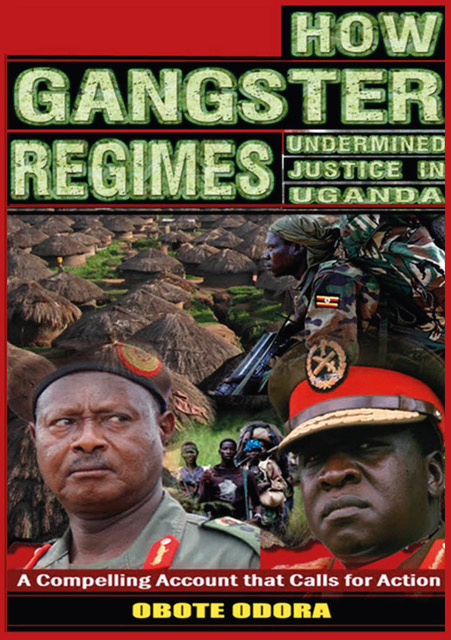
How gangster regimes undermined justice in Uganda
How gangster regimes undermined justice in Uganda
Kategorier: Brottslighet och kriminologi Samhälle och samhällsvetenskap Socialtjänst, välfärd och kriminologi
From Idi Amin to Yoweri Museveni, widespread and systematic violations of human rights were rampant. Victims and survivors of these violations were denied justice. The judiciary was not independent. It was controlled by the Executive. After Amin's defeat in 1979, most of the alleged perpetrators moved on to serve in subsequent post-Amin governments. And, Gen Idi Amin lived a free man in Saudi Arabia until his death in 2003. No post-Amin government sought for his extradition to face trial in Uganda for his many crimes.
During the UNLA-controlled government (1979-1986), Amin-era perpetrators were influential to the extent that they either directly or indirectly controlled the government. Eventually, there were no investigations or prosecution of those most responsible for widespread and systematic crimes committed against the civilian population.
After a five year vicious and bloody war (1981-1986), Museveni captured state power and converted the state of Uganda into his private state. He relied on his personal army, the NRA to terrorize the population, instil fear, consolidate his dictatorship and rule the country without consent of the people. During the five year-war, Museveni had recruited into his army, the NRA, some of whom were refugees from neighbouring countries and included some of the most seasoned perpetrators who had loyally served Idi Amin. Like Amin before him, Museveni continued to undermine the Judiciary by relying on ethnic and religious considerations in the appointment of judges and other staff of the judiciary.
How Gangster Regimes Undermined Justice in Uganda explains why succesive Ugandan governments have worked with, defended, or protected alleged perpetrators of serious crimes. The book examines why current practice of the Museveni gangster regime endangers the future of Uganda and undermines state institutions, particularly the Judiciary. The book poses the question as to what Ugandans must do to seek and get justice for victims and survivors of widespread and systematic violations of human rights and international humanitarian law.






